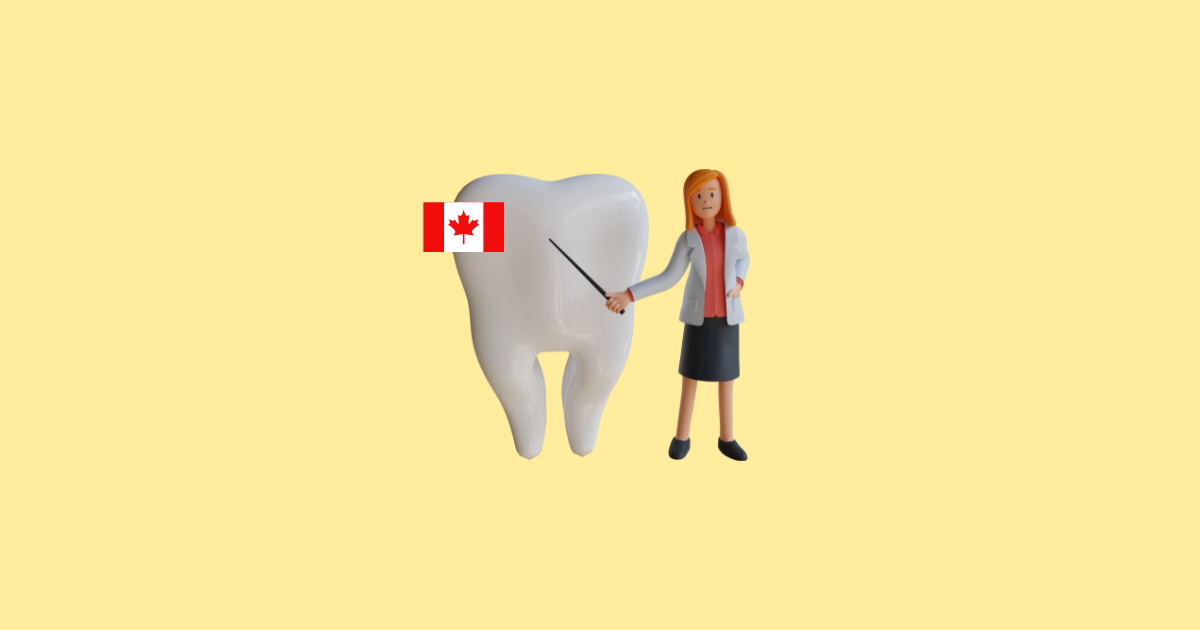How long does it take to become a dentist in Canada? If you’re considering becoming a dentist, you’ve probably asked yourself that exact question.
The answer depends on a few different steps.
Like getting your degree, passing a few exams, and maybe even specializing later on.
In 2025, this process is still pretty straightforward, it definitely takes time and commitment.
Now, whether you’re just in high school, already in college, or thinking about switching paths, this guide will walk you exactly through each stage of the journey so you know what to expect.
Step 1: Bachelor’s Degree (3–4 Years)
One of the most universal requirements for most dental schools is having a 3 to 4-year bachelor’s degree.
Many students choose to major in biology, physics, biochemistry, or health science; they cover the prerequisites and help prepare for the Dental Aptitude Test (DAT).
- Minimum Requirement for Dental School: 3 Years
Some Canadian dental schools allow you to apply after just 3 years of undergrad, if you’ve completed all the required science courses and have strong grades. But be aware, getting accepted without finishing the full degree can be tough. - Optional Summer Courses:
Taking courses in the summer can help you graduate earlier or lighten your course load during the regular semesters. If you stay consistent, it’s possible to finish in 3 years.
Step 3: Enrolling in Dental School (4 Years)
After passing your DAT or “The Dental Aptitude Test”, it’s finally time for dental school.
If you want to know what this test is all about, we have a more detailed process on how to get into dental school.
Once you’re accepted into dental school, you’re looking at 4 years of full-time study.
Here’s how those years usually break down:
Years 1 and 2: Theory + Lab Work

These two years focus on foundational knowledge and pre-clinical skills.
You’ll take courses in:
- Oral biology
- Anatomy and physiology
- Microbiology and pharmacology
- Dental materials
You’ll also spend time in simulation labs learning how to use dental tools and perform basic procedures on models before touching real patients
Years 3 and 4: Clinical Experience

Here’s where you transition into real patient care.
You’ll rotate through various areas like:
- Restorative dentistry
- Prosthodontics
- Pediatric dentistry
- Periodontics
- Oral surgery
NDEB Certification
Before graduating, you’ll complete the National Dental Examining Board of Canada (NDEB) exams, which include:
- The Written Examination (based on clinical and scientific knowledge)
- The OSCE (Objective Structured Clinical Examination), which tests your decision-making and clinical judgment
Step 4 (Optional): Specializing After Dental School (2–6 Additional Years)
After finishing dental school and getting licensed, some dentists choose to go further and specialize in a specific area of dentistry.
This step isn’t required, but it’s great for those who want to focus on something more advanced. Like orthodontics or oral surgery.
Here’s a rough idea of the time commitment for some common specialties:
- Orthodontics (braces and alignment): 3 years
- Pediatric Dentistry (children’s dental care): 2–3 years
- Periodontics (gums and implants): 3 years
- Endodontics (root canals): 2–3 years
Total Timeframe: How Long Does it Take to Become a Dentist in Canada?
So, how long does it take?
If you add everything up, the average student spends around 7 to 8 years from the start of university to becoming a licensed general dentist in Canada.
- Undergraduate Degree: 3 to 4 years
(You need at least 3 years of university, but many students complete a 4-year bachelor’s degree.) - Dental School: 4 years
(Full-time professional program that includes both classroom and clinical training.) - Licensing Exams: A few months
(After dental school, you must pass the NDEB exams to be licensed.)
🧠 Optional: Specialization: 2 to 6 additional years
(If you want to specialize, like in orthodontics or oral surgery, you’ll need extra training.)
Yes, it’s a long journey, but it’s totally worth it!
Conclusion
Now that you know how long it takes to become a dentist in Canada, are you ready for the challenge?
From studying hard to gaining hands-on experience in dental school, every step prepares you for a meaningful career that truly makes a difference in people’s lives.
If you’re passionate about science, health, and caring for people, dentistry in Canada might just be the perfect path for you.


